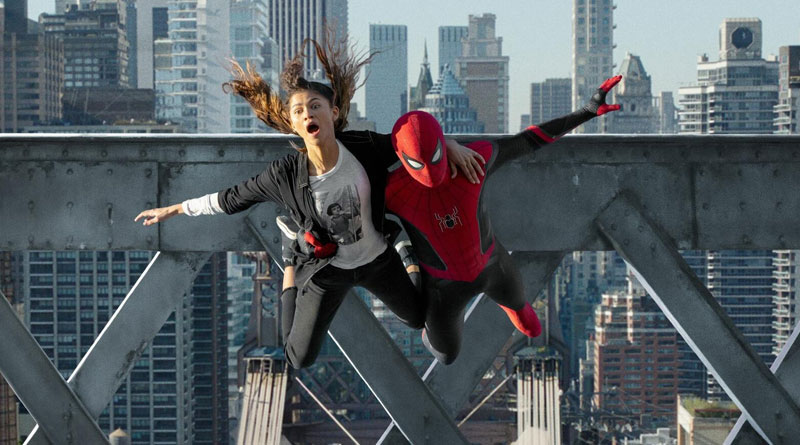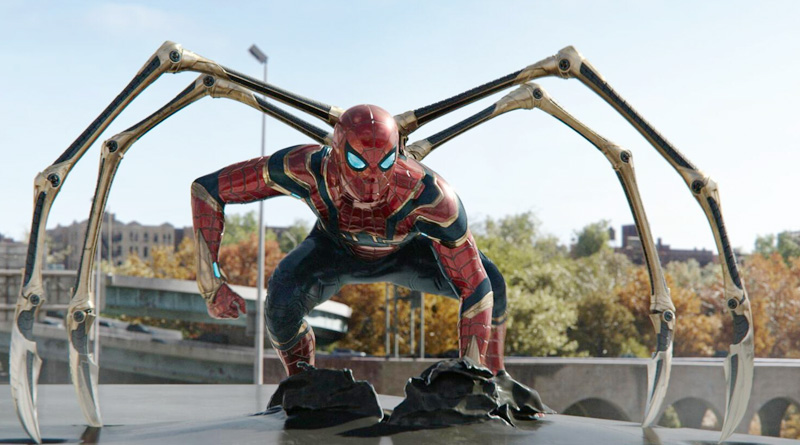Spider-Man: No Way Home (2021) Review
Before I proceed any further, this is a spoiler-free review. That means I won’t be discussing any specific plot points related to Spider-Man: No Way Home.
First things first, I get that there’s a massive hype surrounding Spider-Man: No Way Home, the third film in the MCU’s Spider-Man trilogy. Most people are generally excited over the prospect of seeing not one but two of their respective fan-favourite Spider-Man appearing in the same film for the first time ever. Those two in question are none other than Tobey Maguire from the original Sam Raimi trilogy and Andrew Garfield in the first two Marc Webb-directed films in the rebooted franchise. Whether or not these two actually appear in this film, well, you just have to find out for yourself.
And that is not all, as Spider-Man: No Way Home features three past villains from both Sam Raimi and Marc Webb’s versions, namely Alfred Molina’s Doctor Octopus, Willem Dafoe’s Green Goblin and Jamie Foxx’s Electro. Personally, I’m more interested in the multiverse concept prominently featured in the MCU film.
Besides, such a concept opens a lot of infinite possibilities in terms of expansive storytelling, which was already seen partially in Avengers: Endgame (2019) and this year’s Disney+ miniseries WandaVision, Loki and most of all, the animated What If…?

So, in Spider-Man: No Way Home, the third film continues with Peter Parker (Tom Holland) coping with the fact that his once-secret identity as Spider-Man has already been exposed by Mysterio (Jake Gyllenhaal) at the end of Spider-Man: Far From Home (2019). As a result, he ends up seeking help from Doctor Strange (Benedict Cumberbatch) in hope of restoring his secret identity. Not surprisingly, the spell doesn’t turn out as smooth as expected when it causes a catastrophe mess of alternate-reality multiverse.
The inclusion of the multiverse concept means the stakes are naturally higher than the first two Spider-Man. And for that, returning director Jon Watts made great use of it by raising the tension in the utmost entertaining ways possible. The action sequences are both epic and cinematic, where Watts continues proving to be an ace in executing thrillingly-staged set pieces (among them includes the elaborate highway battle between Spider-Man and Doctor Octopus and of course, the climactic final showdown). Watts’ virtuoso camerawork and Michael Giacchino’s lively score help too while the special effects are just as visually impressive (the trippy Inception-like set-piece comes to mind). If possible, do watch this on the biggest screen possible.
Spider-Man: No Way Home also marks the return of the screenwriting duo Chris McKenna and Erik Sommers, both of whom responsible for reducing Spider-Man: Far From Home‘s otherwise potentially ambitious sequel into an overly-jokey rehash of the better-executed first film (2017’s Spider-Man: Homecoming). Frankly, I’m worried history might repeat itself and I’m happy to say that’s not the case in the third film.
Sure, the obligatory lightweight and jokey moments that have been synonymous with MCU films still rear its ugly head here, particularly during the wobbly earlier parts of Spider-Man: No Way Home. But overall, McKenna and Sommers’ screenplay mostly find the right balance between the usual comedy tone and at times with some spot-on meta humour with enough dramatic heft, all emotionally penetrating and thoughtful moments covering weighty themes like redemption and sacrifice.

This also goes to show Watts is more in control here because, in the hands of a lesser director, the third film might end up in a bloated mess. Even with the multiverse concept and all, especially with the re-introduction of several past villains from the prior Spider-Man films, it doesn’t fall victim to the familiar too-many-cooks-spoil-the-broth phrase or caught up too much with the exposition-heavy scenarios.
In fact, I find the nearly 2 hours and 30 minutes length is largely well-paced throughout the film. It also benefits a lot the villains that appear in Spider-Man: No Way Home was already firmly established in their respective films and the actors who play them thankfully aren’t just showing up for easy paychecks. I’m particularly enjoy seeing Alfred Molina and Willem Dafoe reprise their iconic antagonist roles as Doctor Octopus and Green Goblin.
As strong as the nostalgia factor plays out in this film (and I mean it in a good way), Watts doesn’t forget the personal arc that Tom Holland’s Peter Parker/Spider-Man has to go through after the public knows about his secret identity. As crazy as the multiverse concept causes the return of related characters from alternate realities, I like how Watts still manages to keep the current Spider-Man’s story in full focus.

Tom Holland excels a lot in his role as Peter Parker/Spider-Man and this is easily his best one ever seen since he first donned the iconic Spidey suit in Captain America: Civil War (2017). This is especially true with the way his initial character as a naive teenager seen in his past MCU appearances has finally grown up under the forced circumstances. Let’s not forget about his co-stars including Zendaya and Jacob Batalon, who provide solid supports as MJ and Ned respectively, even with the larger ensemble cast this time around. Benedict Cumberbatch’s Doctor Strange, in the meantime, is a fun and crucial addition here. And most of all, his appearance doesn’t overshadow Tom Holland here.
With 2021 about to wrap up in two weeks’ time, it’s finally nice to see a great MCU film after the three uneven results of Black Widow, Shang-Chi and the Legend of the Ten Rings and Eternals. Not only that as Spider-Man: No Way Home is easily the best Spider-Man film I’ve ever seen since Sam Raimi’s Spider-Man 2 (2004). Likewise, do remember to stick around since Spider-Man: No Way Home has both mid-credits and post-credits scenes.





